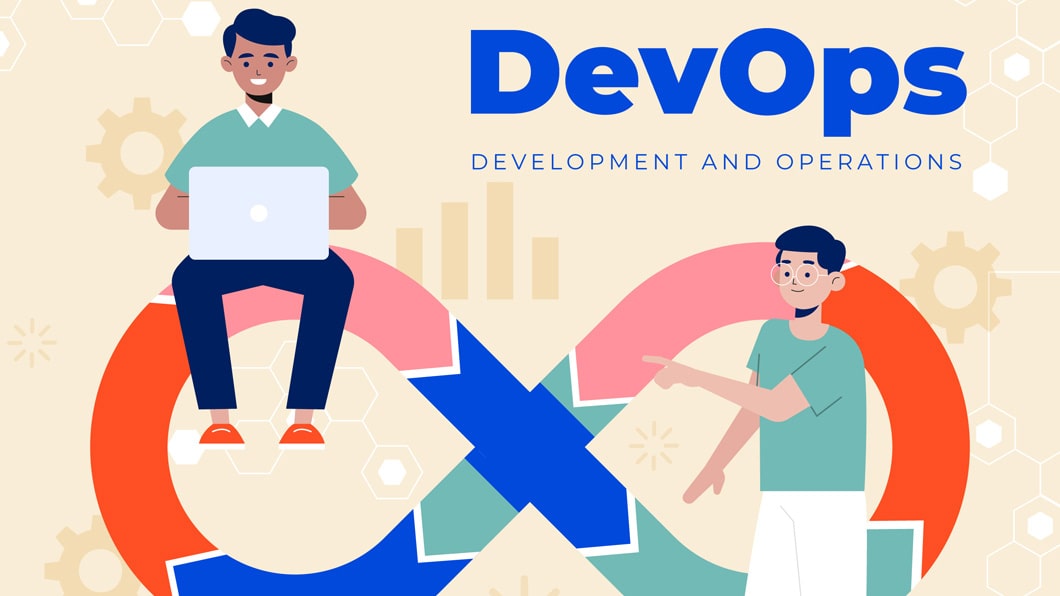
The Power of DevOps
Introduction
In today’s fast-paced digital landscape, the demand for high-quality software solutions is ever-growing. To meet these demands, IT companies are constantly seeking ways to accelerate development cycles, improve collaboration, and enhance the overall quality of their software products. This is where DevOps comes into play. DevOps, a fusion of Development and Operations, is not just a buzzword; it’s a transformative approach that has become a game-changer in the IT industry. In this blog, we will explore the principles, practices, and tools that make DevOps an essential methodology for IT companies.
What is DevOps, and Why is it Important?
At its core, DevOps is a cultural and technical movement that emphasizes collaboration and communication between software development and IT operations teams. The primary goal is to automate and streamline the software development and deployment processes. DevOps ensures that software is developed, tested, and deployed more rapidly and reliably, resulting in faster time-to-market and reduced risks.
DevOps is essential for several reasons:
- Accelerated Development Cycles: DevOps practices enable continuous integration and continuous delivery (CI/CD), allowing developers to make changes and updates more frequently, leading to faster releases.
- Improved Collaboration: It bridges the gap between development and operations teams, fostering better communication, sharing of knowledge, and alignment of goals.
- Enhanced Quality: Automation and testing in the DevOps pipeline help catch bugs and issues early, ensuring a higher quality end product.
- Cost-Efficiency: By automating repetitive tasks, DevOps reduces operational costs and resource wastage.
- Competitive Advantage: IT companies that adopt DevOps can respond more swiftly to market changes and customer feedback, gaining a competitive edge.
Key Principles of DevOps

DevOps is built on a set of core principles:
- Automation: Automate repetitive and manual processes to reduce errors and accelerate deployments.
- Collaboration: Foster a culture of collaboration and shared responsibility between development and operations teams.
- Measurement: Use data and metrics to monitor and continuously improve the software development and deployment processes.
- Monitoring and Feedback: Continuously monitor applications and gather user feedback to make data-driven improvements.
- Continuous Testing: Implement automated testing throughout the development pipeline to identify and fix issues early.
Real-World Success Stories
Numerous companies have embraced DevOps with remarkable results. For example:
- Amazon: Amazon deploys new code every 11.6 seconds, thanks to their robust DevOps practices.
- Netflix: Netflix uses DevOps to ensure seamless streaming experiences for millions of users, even during peak demand.
- Etsy: Etsy achieved a 50% reduction in incidents and a 75% reduction in incident response time after adopting DevOps.
Tools and Best Practices for Implementing DevOps

Implementing DevOps requires the right tools and best practices. Some popular DevOps tools include:
- Git and GitHub/GitLab: For version control and collaborative development.
- Jenkins and Travis CI: For CI/CD automation.
- Docker and Kubernetes: For containerization and orchestration.
- Ansible and Puppet: For configuration management.
- Monitoring Tools: Such as Prometheus and Grafana for application monitoring.
Best practices include creating a DevOps culture within your organization, defining clear processes, and continuously refining your DevOps pipeline.
The Future of DevOps
As technology continues to evolve, so does DevOps. DevOps is not a static concept but an adaptable one. The future of DevOps includes more automation, increased use of AI and machine learning for predictive analytics, and a broader integration of security practices into the DevOps pipeline (DevSecOps). Embracing these trends will ensure that your IT company remains at the forefront of software development and deployment.
Conclusion
In conclusion, DevOps is not just a trend but a fundamental shift in the way IT companies approach software development and deployment. By implementing DevOps practices, you can streamline your processes, improve collaboration, and ultimately deliver higher-quality software products to meet the ever-growing demands of the digital age.

FAQs (Frequently Asked Questions) About DevOps
1. What is the main goal of DevOps?
The main goal of DevOps is to accelerate software development and deployment processes by fostering collaboration, automation, and continuous improvement between development and operations teams. This results in faster releases, higher-quality software, and reduced risks.
2. What are the key principles of DevOps?
The key principles of DevOps include automation, collaboration, measurement, monitoring and feedback, and continuous testing. These principles guide the cultural and technical aspects of DevOps implementation.
3. How does DevOps benefit IT companies?
DevOps benefits IT companies by accelerating development cycles, improving collaboration between teams, enhancing software quality, reducing operational costs, and providing a competitive advantage through faster responses to market changes and customer feedback.
4. What are some popular DevOps tools?
Popular DevOps tools include Git/GitHub/GitLab for version control, Jenkins and Travis CI for CI/CD automation, Docker and Kubernetes for containerization and orchestration, Ansible and Puppet for configuration management, and monitoring tools like Prometheus and Grafana.
5.Can you provide examples of companies that have successfully adopted DevOps?
Sure, some notable examples of companies that have embraced DevOps successfully are Amazon, which deploys new code every 11.6 seconds; Netflix, which ensures seamless streaming experiences during peak demand; and Etsy, which reduced incidents and response times significantly after adopting DevOps.
6. What is the future of DevOps?
The future of DevOps includes more automation, increased use of AI and machine learning for predictive analytics, and a broader integration of security practices into the DevOps pipeline (DevSecOps). DevOps will continue to adapt to technological advancements to improve software development and deployment processes.
7. How can an organization implement DevOps?
Implementing DevOps involves creating a DevOps culture, selecting the right tools, defining clear processes, and continuously refining the DevOps pipeline. It often starts with small, incremental changes and a commitment to collaboration and automation.
8. What are some challenges organizations may face when adopting DevOps?
Challenges in adopting DevOps can include cultural resistance to change, selecting the appropriate tools, integrating legacy systems, and ensuring security and compliance in the DevOps pipeline. Overcoming these challenges requires careful planning and commitment to the DevOps principles.
9. Is DevOps only for large organizations, or can smaller companies benefit from it too?
DevOps principles and practices can benefit organizations of all sizes. While larger companies may have more complex systems and processes, smaller companies can also streamline their development and deployment, improve collaboration, and deliver high-quality software through DevOps.
10. What role does automation play in DevOps?
Automation is a fundamental aspect of DevOps. It involves automating repetitive and manual tasks in the software development and deployment pipeline, which reduces errors, accelerates deployments, and ensures consistency in processes. Automation is key to achieving the goals of DevOps.














